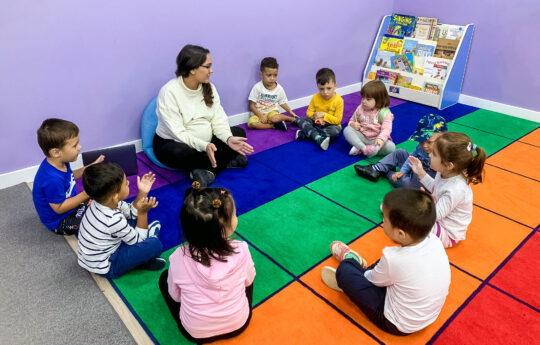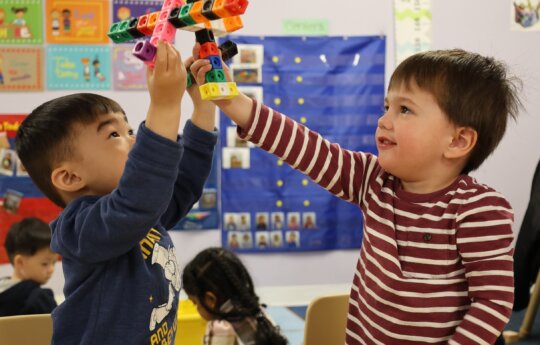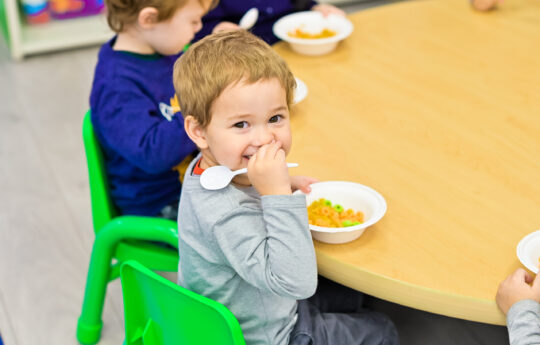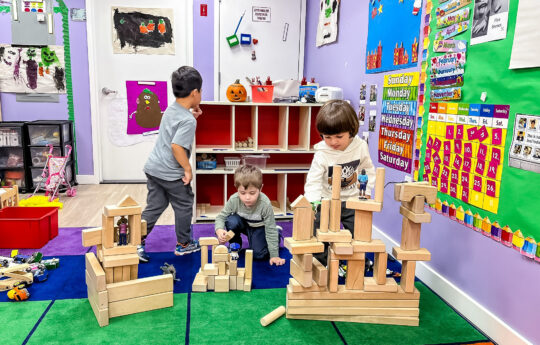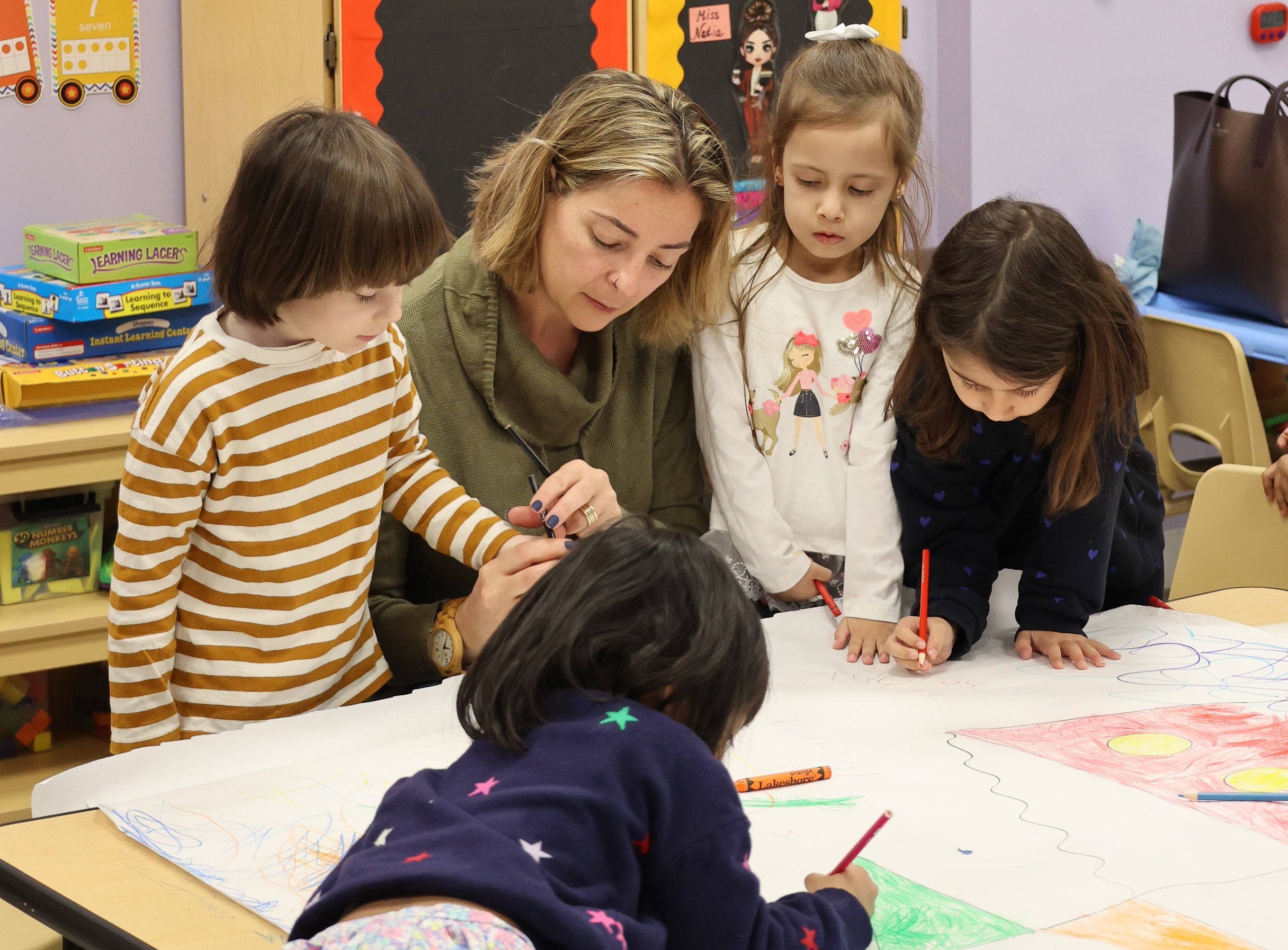
Parents are never completely objective when it comes to their kids. Some undervalue the child’s talent because they have high expectations for him. Others overrate the child’s abilities and attribute to him brilliant mental ability. Let’s face it: trying to raise a genius is an unappreciated endeavor. Finding children’s gifts and trying to unleash a child’s talent is much more beneficial because every skill that goes unnoticed represents a missed opportunity for the child in the future.
Exploring Your Child’s Talent and Interests
Giving a child as many opportunities as you can for self-realization is the only way to recognize and unleash his or her full potential. Let them experiment with modeling, athletics, and music. Allow them to create art, dance, and solve logic puzzles. Children’s intelligence will develop with any form of mental practice. Do not cease engaging the child in creative activities just because he has a propensity for maths. Find ways to pique his interest in literature or environmental studies even if he enjoys football.
An advantage of identifying remarkable abilities in preschoolers is their high level of interest, openness to learning new things, and lack of mental limitations. Although intellectual growth continues in primary school, the kid then requires additional motivation.
Tips for Parents and Educators on Observing Children’s Play and Activities
Observing children’s play and activities can provide valuable insights into their talents and abilities. Here are some tips for parents and educators:
- Watch Without Interfering: Observe quietly and unobtrusively to see how children engage naturally with their environment. Avoid directing their play or activities to get a true sense of their interests and skills.
- Note the Types of Activities: Pay attention to the kinds of activities that consistently attract the child’s interest. Are they drawn to building, drawing, solving puzzles, playing with numbers, or storytelling?
- Look for Patterns: Identify any recurring themes or patterns in their play. Do they often role-play a particular character or profession? Do they show a preference for musical instruments or enjoy creating rhythms and melodies?
- Consider Their Focus and Persistence: Observe how long they can concentrate on a task and how they handle challenges or obstacles. Children often exhibit talent in areas where they demonstrate sustained focus and determination.
- Listen to Their Questions: The questions children ask can be very telling about their interests and potential talents. They may reveal a curiosity about how things work, a fascination with certain subjects, or a desire to explore specific concepts.
- Provide a Variety of Materials: Offer different types of materials and activities to see what resonates most with the child. This could include art supplies, musical instruments, science kits, sports equipment, or books on various subjects.
- Watch for Social Interactions: Observe how children interact with others during play. Do they prefer collaborative activities, or are they more comfortable working alone? Leadership skills, empathy, and communication abilities can often be spotted in social settings.
- Encourage Expression: Give children opportunities to express themselves and share what they enjoy. This can be through art, writing, verbal storytelling, or play-acting. Expression is often a window into a child’s inner world and potential talents.
- Document Observations: Keep a record of observations to track development over time. Notes, photographs, or videos can help parents and educators recognize progress, changes, and emerging talents.
- Engage in Conversation: Talk to the child about their play and activities. Their explanations and descriptions can provide deeper insights into what they find interesting and where their natural abilities lie.
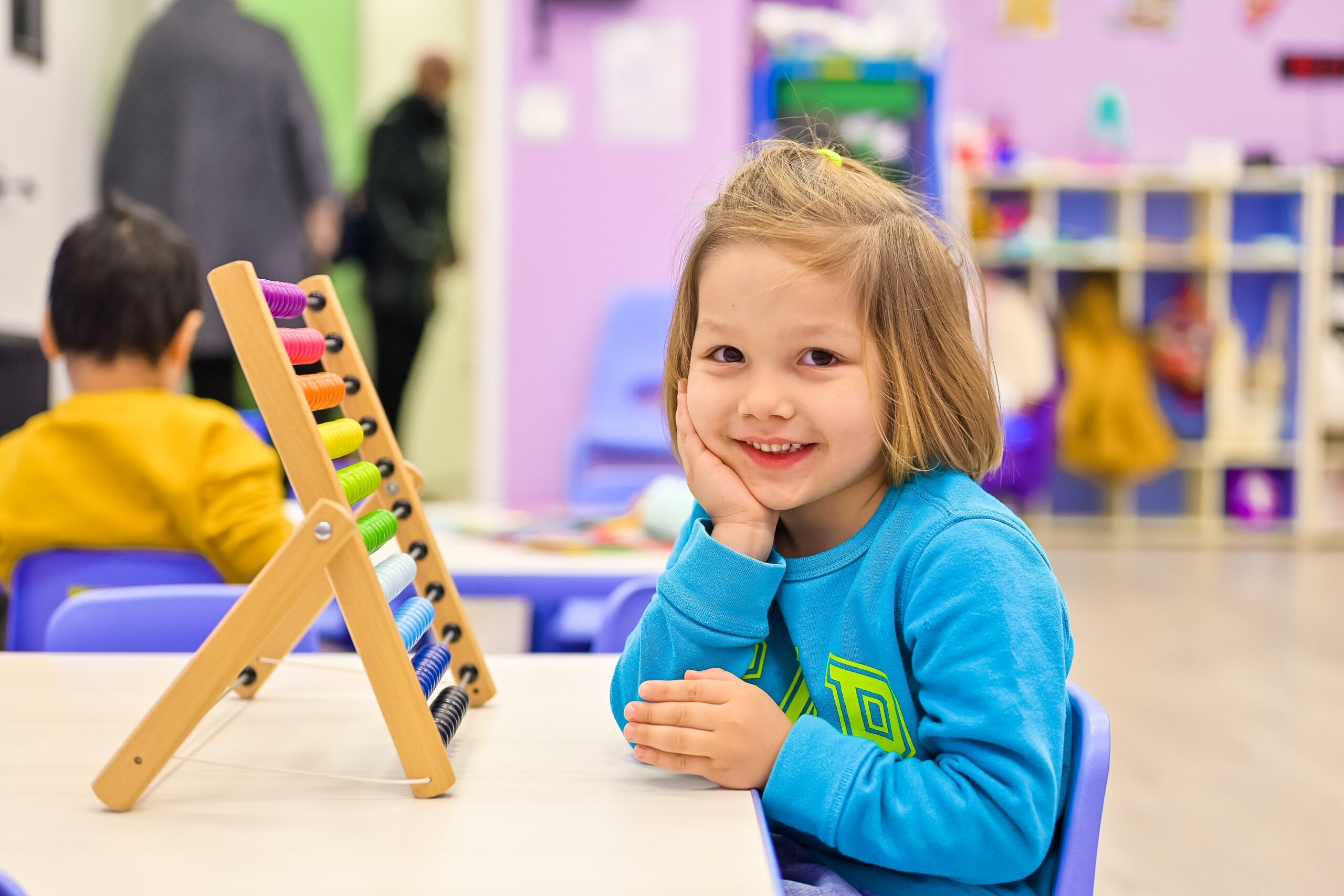
Thinking About Different Types of Intelligence
Howard Gardner, a psychologist from the United States, put up a theory to explain many forms of child intelligence. The scientist contends that it is insufficient to define a child’s talent development in terms of a straightforward IQ test. While academic achievement is obviously vital, a child’s ability for art, music, dance, and other extracurricular activities is also crucial. When assessing the child’s potential, all of these inclinations must be taken into consideration. This led to the development of the idea of multiple intelligences, which establishes that any one or two of the eight categories of intelligence can predominate in a kid.
-
Bodily-Kinesthetic Intelligence
Bodily-kinesthetically intelligent kids typically excel in sports and other physical activities. They move a lot, and they coordinate their movements well. You may be sure your youngster has this kind of intelligence if he or she expresses interest in playing games and has good motor coordination. You should carefully watch them in order to learn more about their tendencies.
-
Visual-Spatial Intelligence
How well a youngster can visualize things, places, and even their dreams depends on this kind of intelligence. Children with this level of intelligence are talented in arts like sculpture and sketching. They can accurately recreate prior events and are skilled at estimating the size of items. They frequently use images to convey their ideas and emotions.
Your youngster has developed visual-spatial intelligence if he or she pays attention to details and is able to recall even the smallest aspects of commonplace situations. Its owner’s children may go on to become skilled painters, architects, or experts in related professions.
-
Logical-Mathematical Intelligence
A child’s capacity for mathematical reasoning and argumentation is correlated with their level of logical intelligence. The capacity to find solutions to a variety of issues is a crucial component of logical-mathematical intelligence. Your child has acquired this kind of intellect if he or she is perceptive, creative, logical, able to explain things, and understands hints.
-
Musical Intelligence
Children that enjoy making music, singing, and beating various rhythms acquire this kind of intellect. They are better than others at understanding music. Your child surely has a developed musical intelligence if he or she has a decent voice, a good sense of rhythm, can distinguish between tonalities, and is interested in playing musical instruments.
-
Linguistic Intelligence
Language skills in children with linguistic intelligence are typically very advanced. This kind of intelligence has been present if your child enjoys reading, has good handwriting, a solid grasp of syntax, and the ability to write complex words correctly.
-
Existential Intelligence
If a child has this kind of intelligence, he will not be bored or terrified when left alone. This type is linked to traits like independence, self-awareness, and responsibility. Existentially intelligent kids are aware of their strengths and weaknesses.
-
Interpersonal Intelligence
Such kids are able to converse well with others. They typically enjoy being with others and have lots of friends, too. This kind of intelligence has been established in your child if he or she enjoys interacting with others and spends a lot of time with his or her buddies. Such kids are able to communicate with people of all backgrounds and comprehend how to handle various circumstances.
-
Naturalistic Intelligence
Your youngster has shown this kind of intelligence if he is interested in gardening or taking care of animals. These kids adore being outdoors. They enjoy taking walks in parks, along rivers, and anywhere else there isn’t asphalt since they are interested in a variety of natural occurrences.
Knowing how each of the eight categories of intelligence presents itself will help you not only say “my child is talented” but also identify your child’s areas of strength. Recognize their abilities when they are young, and you won’t have to worry about their future.
Evaluating Your Child’s Abilities and Intelligence
A person’s abilities are unique qualities that show a propensity for a particular activity. It is not possible to identify the abilities of a one-year-old child. Instead, one can only examine what intrinsic predispositions the infant has because these are what serve as the foundation for future tendencies to develop. The first phase in the development of abilities and inclinations is shown in a child’s interest in a certain activity.
Talent versus Persistence: Managing Expectations
On the other hand, talent is fairly uncommon, therefore it is not worth becoming frustrated if your child does not have exceptional talent. Persistence and tenacity can occasionally provide much greater outcomes.
Observation and Understanding
How to unleash a child’s talent? To begin with, observe. You are the best person to understand your child’s talent. Building cube-based fortifications, painting fervently, or refusing to let go of his beloved drum—these are all pastimes that a young child may or may not pursue as a career throughout his life. Don’t jump to conclusions right away. Furthermore, you should avoid enrolling your kid in a ton of different groups and divisions.
Encouraging Interests Without Overwhelming
Instead, discuss, ask questions, and evaluate the responses. Find out what the child enjoys doing and why. Of course, a two-year-old will not be able to explain much. But by the time the child is five, the explanations will be more logical and perhaps even explain the child’s fascination.
Enthusiasm and Competence in Activities
Things like musical instruments, a soccer ball, or a construction set can be given to help show tendencies. Then continue to observe and assess: What level of enthusiasm does the child display when playing this or that game? How much time does she devote to this task, and how competently does she complete it? Your understanding of your child will improve as a result of learning his talents and how to further develop them.
Balancing Guidance and Freedom in Skill Development
Sometimes, in an effort to provide their child with additional options, parents may test every early development technique on the child. It’s critical to realize that parents have a responsibility to guide by setting up all of the circumstances necessary for the development of skills in line with the child’s preferences and age. Of course, the child should be given the freedom of choice so that they can choose for themselves what they want to accomplish in life.
Finding out what the youngster is capable of is vital, but developing those skills and keeping the child interested in them is even more important.
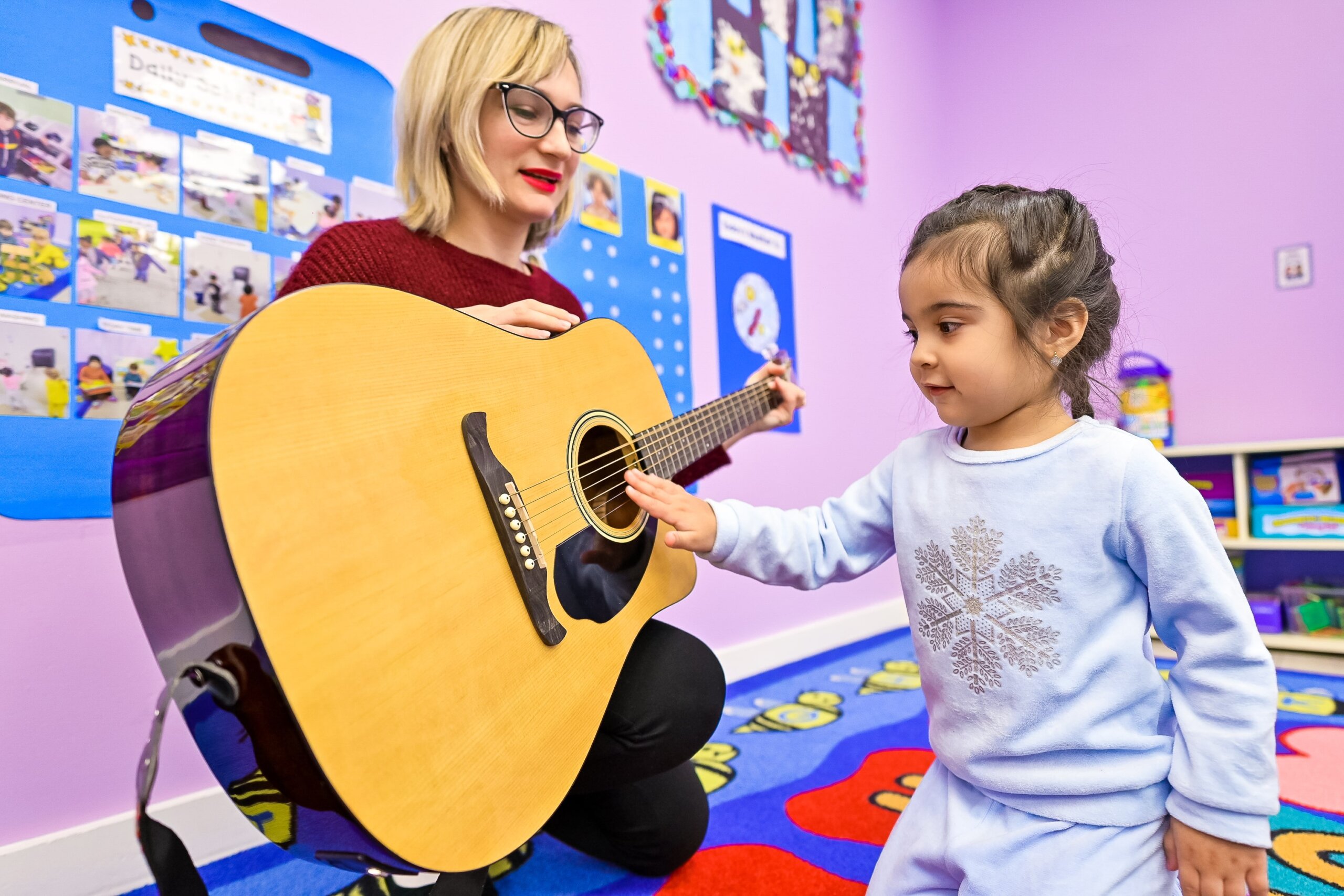
The Role of Environment
Creating a supportive and enriching environment at home and in daycare is fundamental for the holistic development of children. This environment should cater to the diverse needs of children, fostering their cognitive, social, emotional, and physical growth. Here’s how parents and educators can achieve this:
- Safe and Nurturing Space: Ensure that the environment is physically safe and emotionally nurturing. Children should feel secure and valued, with spaces that encourage exploration and creativity.
- Diverse Learning Materials: Provide a variety of materials and resources that cater to different interests and learning styles. This could include books, art supplies, building blocks, puzzles, and interactive technology.
- Inclusive and Respectful Atmosphere: Create an inclusive environment that respects and celebrates diversity. Children should be exposed to different cultures, languages, and experiences to foster understanding and empathy.
- Opportunities for Play and Exploration: Encourage play as a fundamental way of learning. Design spaces and activities that promote exploration, discovery, and imaginative play.
- Stimulating Educational Experiences: Offer activities that challenge and stimulate children’s thinking, such as problem-solving tasks, scientific experiments, and storytelling sessions. These experiences should be age-appropriate and designed to engage children’s curiosity and desire to learn.
- Positive Social Interactions: Facilitate opportunities for children to interact positively with peers and adults. Social interactions help develop communication skills, empathy, and collaboration.
- Active Lifestyle Encouragement: Promote physical activity through play areas, outdoor time, and structured physical education. An active lifestyle is crucial for healthy physical and mental development.
- Responsive and Attentive Care: Ensure that caregivers and educators are responsive to the individual needs of each child. Attention to the emotional well-being of children is as important as their physical and intellectual development.
- Parent and Caregiver Involvement: Encourage a partnership between home and daycare settings. Regular communication and involvement of parents and caregivers in the child’s learning and development process enrich the child’s experience and growth.
- Continuous Learning and Improvement: Regularly assess and adapt the environment to meet the evolving needs of children. This includes ongoing training for educators and caregivers to stay informed about best practices in child development and education.
The Influence of Peers and Role Models
Children often emulate the behaviors, attitudes, and activities of those around them, making the presence of positive role models crucial for fostering healthy development and discovering talents. Peers, siblings, teachers, and family members can all serve as influential role models, demonstrating skills, values, and attitudes that children may adopt and integrate into their own repertoire of talents.
For instance, a child might develop an interest in music after watching a friend play an instrument or might pursue sports more fervently when inspired by an older sibling’s dedication to athletics. Moreover, role models can provide motivation, guidance, and encouragement, helping children to navigate challenges and persist in their efforts to improve and excel in their areas of interest. The support and recognition from peers and role models not only boost a child’s self-esteem but also play a pivotal role in the exploration and enhancement of their innate abilities and talents.
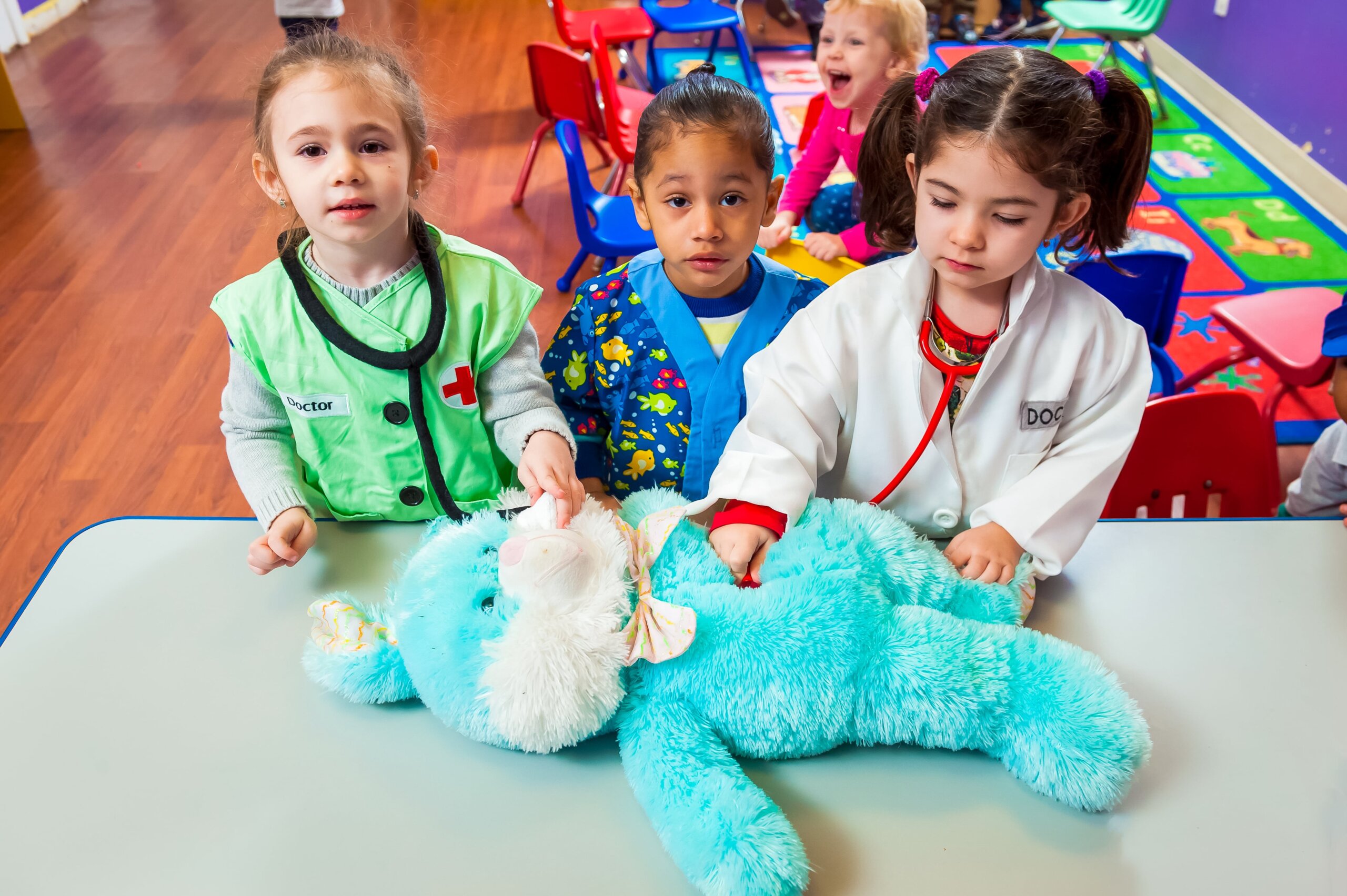
Long-term Perspective
The talents and abilities of children can evolve significantly as they grow and experience new things. Here’s a closer look at this dynamic process:
- Developmental Stages: Children go through various developmental stages that influence their interests and abilities. For instance, the fine motor skills required for drawing or writing improve with age, which can lead to emerging artistic talents in later years.
- Exposure and Experience: As children are exposed to different activities, people, and environments, they may develop new interests and skills. A child not initially interested in music might develop a passion for it after attending a concert or starting music lessons.
- Changing Interests: It’s natural for children’s interests to change over time. What may start as a fascination with dinosaurs might evolve into a broader interest in science or history as they learn and grow.
- Skill Refinement: With practice and experience, children refine their skills, which can lead to the discovery of hidden talents. Continuous engagement in an activity often leads to improved performance and deeper interest.
- Influence of Peers and Mentors: The interests and abilities of children can be influenced by their peers and mentors. A child might discover a talent for a sport or art form by observing and emulating others.
- Self-Discovery and Identity Formation: As children grow, they start forming their identity, which is often linked to their talents and abilities. They might pursue certain activities more seriously as they consider their future roles and careers.
- Impact of Encouragement and Support: Encouragement from parents, teachers, and peers can motivate children to explore different areas and challenge themselves, leading to the development of new skills and talents.
- Adaptation to Life Changes: Life events, such as moving to a new city, changing schools, or encountering new cultural experiences, can significantly impact a child’s interests and talents, prompting them to adapt and develop new abilities.
Preparing for Changes in Interests and Skills Over Time
As children grow, their curiosity leads them through various phases of interest, which may shift or expand their skill set. Parents and educators can foster this growth by creating an adaptable environment that encourages exploration and learning. It’s important to recognize and accept that a child’s passion for certain activities may wane as they discover new interests.
Providing a range of experiences and resources, from art and music to sports and science, allows children to explore different domains and develop a wide array of skills. Regularly assessing and adjusting to the child’s evolving interests helps maintain engagement and ensures continuous learning and development. This approach not only supports the child’s current interests but also lays the groundwork for a lifelong love of learning and adaptability to change.
Conclusion
Determining the talent and ability of a child is a nuanced and evolving journey that requires observation, encouragement, and adaptability. While innate abilities and interests can hint at a child’s potential, it is the nurturing environment, exposure to diverse experiences, and the positive influence of peers and role models that truly unlock and develop these talents over time.
Parents and educators play a critical role in this process by providing opportunities for exploration, recognizing and celebrating achievements, and guiding children through their changing interests and skills. Ultimately, the goal is not just to identify and foster a child’s talents but to instill in them the confidence and curiosity to explore their passions, leading to a fulfilling and successful journey of personal growth and development.
The Little Scholars Difference
Discover the nurturing environment and tailored learning experiences that Little Scholars Daycare offers for your child’s growth and development. Join our community where every child’s talent is recognized and nurtured. Visit our website or contact us today to schedule a tour and see how we can help unfold your child’s potential.
Let’s embark on this educational journey together, fostering a love for learning that lasts a lifetime. Enroll now at Little Scholars Daycare – where little minds grow into big dreams!

